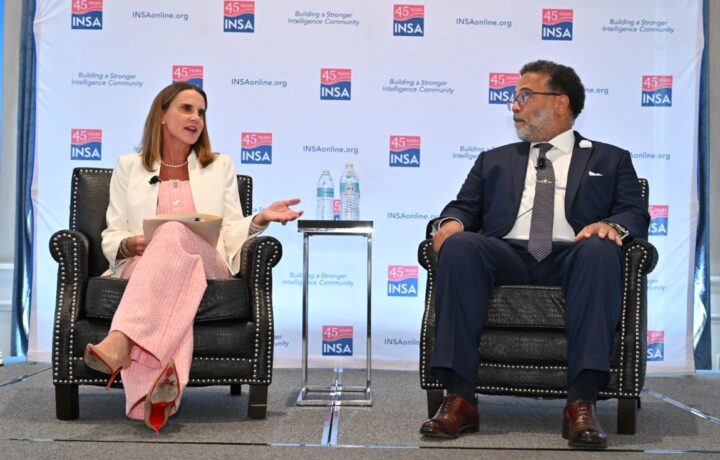The cyber talent shortage is a common issue talked about across the public and private sectors. But whether it’s the federal government or the contractors supporting it, the issue is less about the actual gap in finding individuals with the jobs, than the gap in finding individuals with the right degrees, years of experience, and security clearances to fill the requirements.
A growing number of government leaders are starting to reconsider those requirements. Harry Coker, Jr., national cyber director, discussed executive branch efforts to promote skills-based hiring during a fireside chat hosted by the Intelligence and National Security Alliance (INSA) as a part of their New IC event at the Army Navy Country Club.
There are 500,000 open cyber jobs, Coker said. “We have the talent to fill those jobs, he went on. “We’re probably not looking in the right place, considering enough of the right people.”
One of the approaches the government is considering is removing obstacles – and four-year degree requirements are one of those obstacles, and pursuing skills-based hiring as the preferred approach for cyber talent.
The push for skills-based hiring is one echoed across legislature, academia and industry, and it’s getting support from groups like INSA, who recently published an op-ed coauthored by INSA President Suzanne Wilson Heckenberg and INSA military fellow David Mitchell.
“Ultimately, a paradigm shift in hiring practices towards skills-based hiring offers significant promise in closing the talent shortage at the federal level,” the op-ed stated. “Government agencies ought to focus more on relevant skills and experience from apprenticeships, coding bootcamps and other non-traditional pathways.”
Those various pathways to a successful career are something else Coker noted. Education is fundamentally different than training, and may not reflect actual skills. “We have folks that are capable,” said Coker. “We need their skills now.”
Shifting the Conversation: Partnering vs. Competing
Buying into the narrative that the available pool of capable talent is limited also creates ongoing debates pitting government and the private sector, particularly Silicon Valley tech firms, against one another.
“For years I’ve been hearing that the government is competing with the private sector for talent,” said Coker. “That’s not accurate…we are complementing each other.”
The push to protect critical infrastructure only further emphasizes those complements. There are 16 critical infrastructure sectors in the U.S., and a large percentage of them are operated by the private sector, said Coker.
Collaboration includes public-private talent exchanges and reskilling efforts, as well. The private sector is currently leading the way on reskilling and adapting its workforces, said Coker. It’s an area where the federal government can grow, and where skills-based hiring can help move non-technical mid-career professionals into more technical roles.
The next few years are critical ones for the skills-based hiring effort. By summer of 205 the executive branch plans to move the GS-2210 “Information Technology Management Series” to skills-based hiring. The move affects more than 100,000 jobs and represents most of the government’s technical hiring fields.




